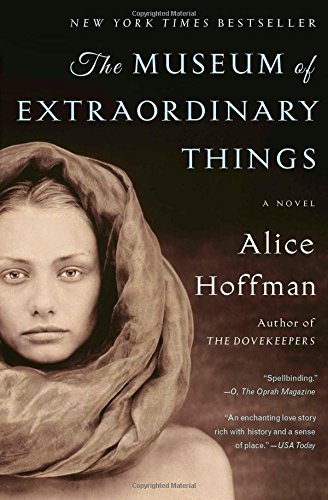 Written by Lauryn Smith In her historical fiction novel "The Museum of Extraordinary Things," Alice Hoffman invites readers to dive into dueling worlds, one mystical and breathtaking, the other dark and seedy. Set in 1911 New York, Hoffman illustrates the time by interweaving the stories of Coralie, a young woman who assists her father’s museum of “natural” wonders, and Eddie, a young man who struggles with his unfortunate past but finds solace in his work as a photographer and life in the Manhattan wilderness. Their paths cross when Eddie accepts a job reminiscent of those he used to accept from shady characters in his youth. This time the job is seeking the missing daughter of an acquaintance of his estranged father. In addition to providing readers a true page-turner of a book, Hoffman expertly introduces readers to actual historical events, in this case the Triangle Shirtwaist Factory fire in Greenwich Village and the fire at Coney Island’s amusement park, Dreamland. Hoffman, the author of more than 30 novels, seems to want to exemplify the psychological impacts of social and economic inequalities. Coralie feels trapped by the wishes of her father, who disallows her from showing her true self, going so far as to require her to glove her deformed hands, while simultaneously forcing her to train as a water-loving creature to be displayed at the museum. Eddie carries with him the watch of the young son of a wealthy factory owner, which he stole when he was a child working alongside his garment-worker father, a token that seems to represent his distaste with societal disparities. His unease is perpetuated by his craft, in which he uses his camera to capture both beautiful and sordid images. Likewise, Coralie learns that the museum of wonders that once seemed magical is actually a house of hidden horrors. How is it that the world can supply such extremes, and in such proximity? In this evaluation, Hoffman is successful, prompting readers to question why such disparities are evident even in the present day. By seeing into the minds of characters at the unfortunate end of the spectrum, readers are invited to empathize with similarly situated individuals, question the roots of various forms of inequality, realize consequences and seek solutions.
In terms of writing style, the prose in "The Museum of Extraordinary Things" is consistent with that of Hoffman's other works. Her writing has a magical, slightly flowery quality that at times seems forced but ultimately aids the development of the story’s characters. In the end, Eddie’s character is clearly more fully expounded upon, lending the reader to sympathize with him more so than with Coralie, arguably the story’s protagonist. While the characters are not portrayed as deeply or as artfully as in some of her others works, such as her 2011 novel "The Dovekeepers," Hoffman tactfully personifies actual tragedies, particularly that of the Triangle Shirtwaist Factory, which occurred on March 25, 1911. This book recognizes the absolute devastation and subsequent frustration felt by the families of the victims of the horrid fire, which took the lives of nearly 150 workers, some of whom would have likely survived had the doors to their workspace not been locked. A well-organized, intriguing story, "The Museum of Extraordinary Things" is recommended, particularly to readers interested in romance, history and the odder side of life. Accurate in its depiction of historical events, charming in its portrayal of relationships with friends and family and insightful when it comes to how different individuals cope with similar experiences, Hoffman’s novel is sure to please those with a penchant for discovering dark circumstanes and then searching for ways to brighten them. Title: The Museum of Extraordinary Things Author: Alice Hoffman Publisher: Scribner Publication date: February 18, 2014 Page count: 384 List price: $16 ISBN: 978-1451693577 Nominations: 2014 Goodreads Choice Award Nominee for Historical Fiction
0 Comments
Your comment will be posted after it is approved.
Leave a Reply. |

Enjoying my book reviews? If you’ve found them helpful or simply love diving into a good book, consider supporting my caffeine-fueled reading sessions! Your contribution helps keep the reviews coming and ensures I stay wide awake for those late-night reading marathons. Cheers to a shared love for literature! ☕️
Categories
All
|
